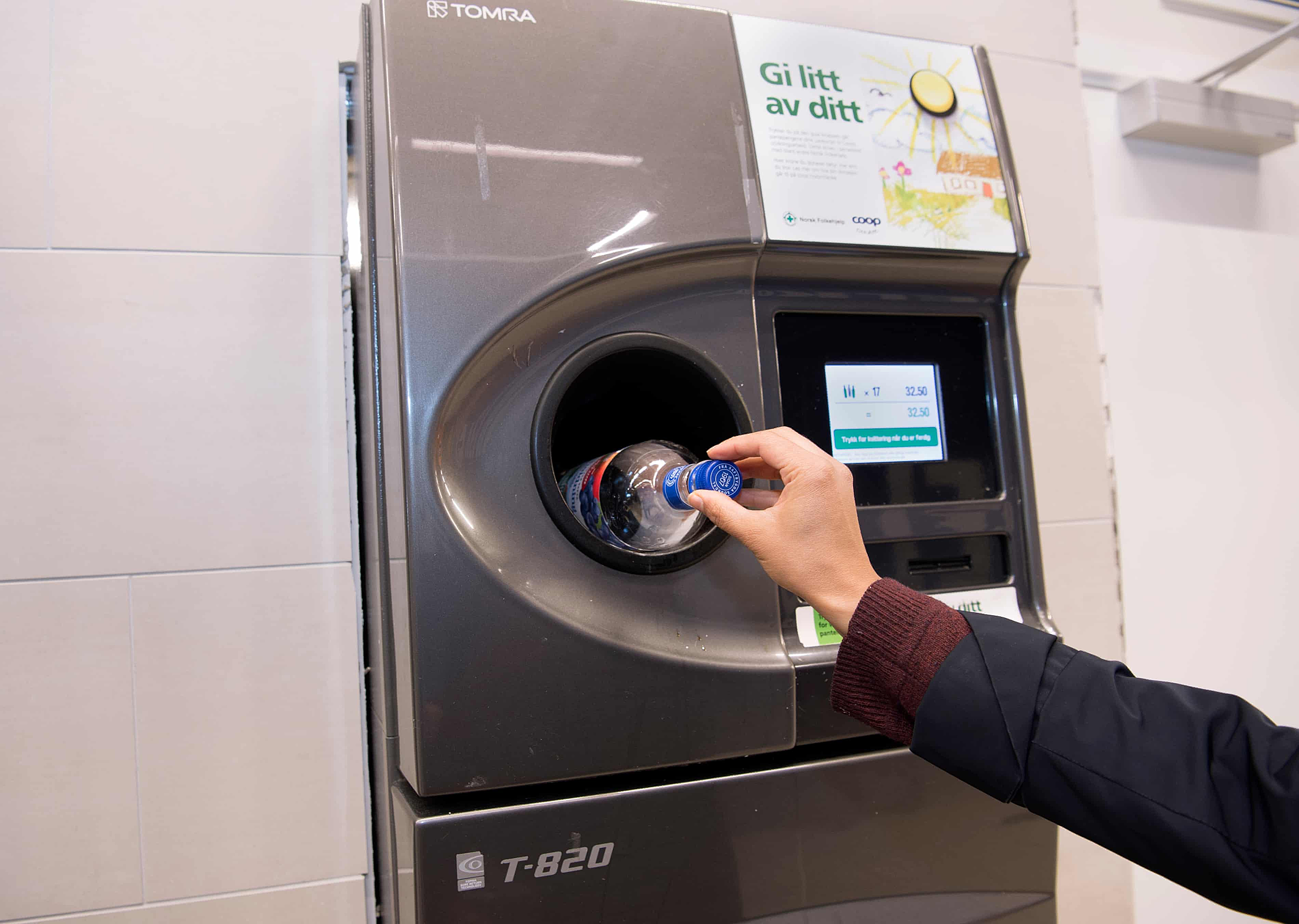At the 2025 Sustainable Consumption Forum on 2/7, Hilde Solbakken, the Norwegian Ambassador to Vietnam, stated that Vietnam has great potential to implement a deposit-return system similar to Norway's.
The Deposit-Return System (DRS) requires consumers to pay a small deposit when purchasing packaged food and beverages and receive a refund when returning the empty containers. This system is a tool for implementing Extended Producer Responsibility (EPR) in Norway, contributing to the country's 92.3% return rate for plastic bottles and aluminum cans.
According to the report "Study on the scope of a suitable deposit-return system (DRS) for Vietnam" conducted by Eunomia Environmental Research & Consulting, if the deposit is set between 1,000 and 2,000 Vietnamese dong per container, Vietnam's collection rate could reach 80-90%.
"We are working closely with international organizations like the United Nations Development Programme (UNDP) and Vietnamese authorities to pilot a DRS model for bottles and jars in Vietnam," said Solbakken.
 |
A reverse vending machine for plastic bottles and cans in Norway, July 2018. Photo: The Guardian |
A reverse vending machine for plastic bottles and cans in Norway, July 2018. Photo: The Guardian
Plastic bottles and aluminum cans account for 98% of single-use beverage packaging in Vietnam. These materials are valuable for recycling, but the collection and recycling rate is only around 50%. Furthermore, these materials are often contaminated when mixed with household waste.
Addressing the environmental benefits of implementing a DRS, the report authors estimate that Vietnam could collect and recycle an additional 21,000 to 77,000 tons of used beverage packaging, significantly reducing the amount of waste sent to landfills and incinerators, especially littering. This could lead to a reduction of 265,000 tons of CO2 equivalent emissions annually and decrease plastic pollution in the ocean.
From a socio-economic perspective, the system could create approximately 6,400 jobs in collection, sorting, and management. The report authors estimate that Vietnam could save around 1,400 billion Vietnamese dong annually due to indirect environmental benefits from reduced greenhouse gas emissions and air, water, and soil pollution.
No Southeast Asian country has yet implemented a DRS. Singapore is the only country planning a DRS trial next year, with a deposit fee of 10 cents. If Vietnam successfully pilots and operates this system, Norway believes it could serve as a model for neighboring countries. "We are ready to support Vietnam with technology and expertise in implementing this model," affirmed the Norwegian Ambassador.
Norway has implemented EPR policies since the 1990s for packaging, electronics, vehicles, and other sectors. Despite Norway’s achievements with EPR, Ambassador Solbakken believes Norway can learn from Vietnam's resourcefulness. Vietnamese people often repair or repurpose items instead of buying new ones, while Norway faces a significant challenge in reducing consumption.
"As of April, we have already used almost all of the renewable resources we can sustainably use in a year," Solbakken stated.
Thuy Truong












